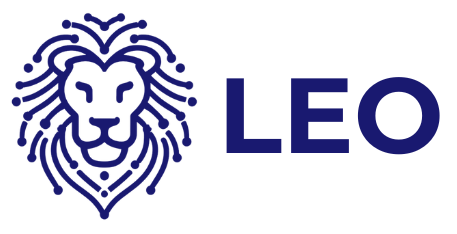Winback Campaigns That Actually Win
Reignite Your Relationship with Lapsed Customers
Every marketer knows it: retaining an existing customer is far more cost-effective than acquiring a new one. But what happens when your customers go quiet? That’s where winback campaigns come in. These targeted email automations can breathe new life into your list, reignite customer interest, and recover lost revenue.
If you’ve already mastered your welcome flow and your abandoned cart series is humming along, winback campaigns are your next strategic move. In this post, we’ll walk through the keys to creating a high-performing winback series: how to segment lapsed subscribers, what offers work, and when to let go.
The Real Cost of Dormancy
Inactive subscribers aren’t just dead weight; they can drag down your deliverability and skew your analytics. When subscribers stop engaging with your emails, inbox providers take notice. Open rates drop. Your sender reputation suffers. And future campaigns risk ending up in the spam folder.
From a lifecycle marketing perspective, the longer customers remain inactive, the less likely they are to re-engage. That’s why automated winback campaigns are essential to any revenue-driving email strategy. Done right, they help you identify who's worth saving and who needs to be respectfully removed.
Know Your Audience
The first step in creating effective winback emails is understanding who qualifies as "lapsed." That definition depends on your business model and purchase frequency.
For e-commerce brands, consider a customer "lapsed" if they haven’t purchased or clicked an email in 60 to 90 days. For subscription or SaaS businesses, that window may extend to 140 to 180 days. Segment these users into a "Re-Engagement" list and pause regular marketing emails until they re-engage.
Within that group, dive deeper:
One-time buyers vs. repeat customers
High average order value vs. discount-driven shoppers
Email-only inactivity vs. full account dormancy
Tailoring your messaging to these behavioral traits boosts relevance and conversion.
Write the Right Message
The worst winback emails feel like robotic guilt trips. The best feel like personalized, timely nudges.
Use subject lines that acknowledge the gap without sounding desperate:
"We miss you (but no pressure)"
"Still thinking about you..."
"Is this goodbye? Let’s not make it official"
In the email body, aim for clarity, empathy, and value. Make the case for why they should reconnect. Use relevant content, personalized recommendations, or meaningful incentives.
Here’s a winning approach:
Acknowledge the absence
Offer real value
Provide a clear CTA
Set expectations (e.g., "You won't hear from us again unless you click below")
Offers That Bring Them Back
Incentives can work wonders, but they should be strategic. Consider:
Exclusive discounts ("Come back and take 15% off—just for you")
Early access to new products or collections
Free shipping or a gift with purchase
Loyalty point bonuses for returning customers
Pair incentives with personalized product suggestions or reminders of past favorites. Subscription businesses can offer flexible reactivation terms or a bonus month.
That said, not all winbacks need discounts. Sometimes, highlighting your product’s continued value or impact is more compelling.
Automate the Flow
While one-off winback emails are helpful, a series often performs better. Here’s a sample winback flow:
Email 1 (Day 0): Gentle nudge ("We miss you")
Email 2 (Day 3-5): Introduce an incentive ("Here’s 15% off if you return")
Email 3 (Day 7-10): Add urgency ("Offer ends soon")
Email 4 (Day 14+): Last call or re-permission ("Should we stop emailing you?")
Use smart delays and exit conditions (e.g., stop if someone clicks or purchases). Most marketing automation platforms make this easy to build, test, and refine.
As a lifecycle marketing agency, we recommend testing timing and messaging variations for different audience segments. High-value customers often respond to different triggers than deal-seekers.
Know When to Say Goodbye
Even the best campaigns won’t win everyone back. That’s okay. Suppressing disengaged users is better than continuing to email them and damaging your sender reputation.
Send a final email with a respectful exit option:
"Still haven’t clicked? We get it. If you're no longer interested, we’ll stop emailing you. No hard feelings. Click below to stay on the list."
If they don’t engage, suppress them from future sends. It’s a healthy part of responsible customer lifecycle management.
Test, Learn, Repeat
No two audiences are the same. That’s why A/B testing is critical to long-term success.
Test elements like:
Subject lines
Send times and frequency
Types and value of incentives
CTA placement and language
Number of emails in the series
Track key metrics: open rates, click-through rates, conversions, and unsubscribes. Use those insights to optimize your marketing automation strategy.
Go Beyond Email
For even stronger results, combine email with other channels:
SMS: Short reminders that add urgency ("Your 15% discount ends tonight!")
Push notifications: Ideal for mobile-first brands
Direct mail: Personalized postcards cut through digital clutter
Social retargeting ads: Reconnect through Meta, TikTok, or Google
These automated marketing solutions enhance your winback flow, not replace it.
Winback Campaigns Work. Are Yours?
A thoughtful winback campaign isn’t just a revenue recovery tactic, it’s a sign of respect. It shows lapsed customers that you value their relationship and want them back for the right reasons.
If you haven’t launched your winback flow yet, now’s the time. If you have, make sure it’s optimized. Dormant subscribers deserve another shot, and with the right strategy, they might become your most loyal customers.
Need help? Our team at LEO offers expert lifecycle marketing, email campaign management, and marketing automation services. Whether you need strategy or execution, we’re here to help you win them back.

